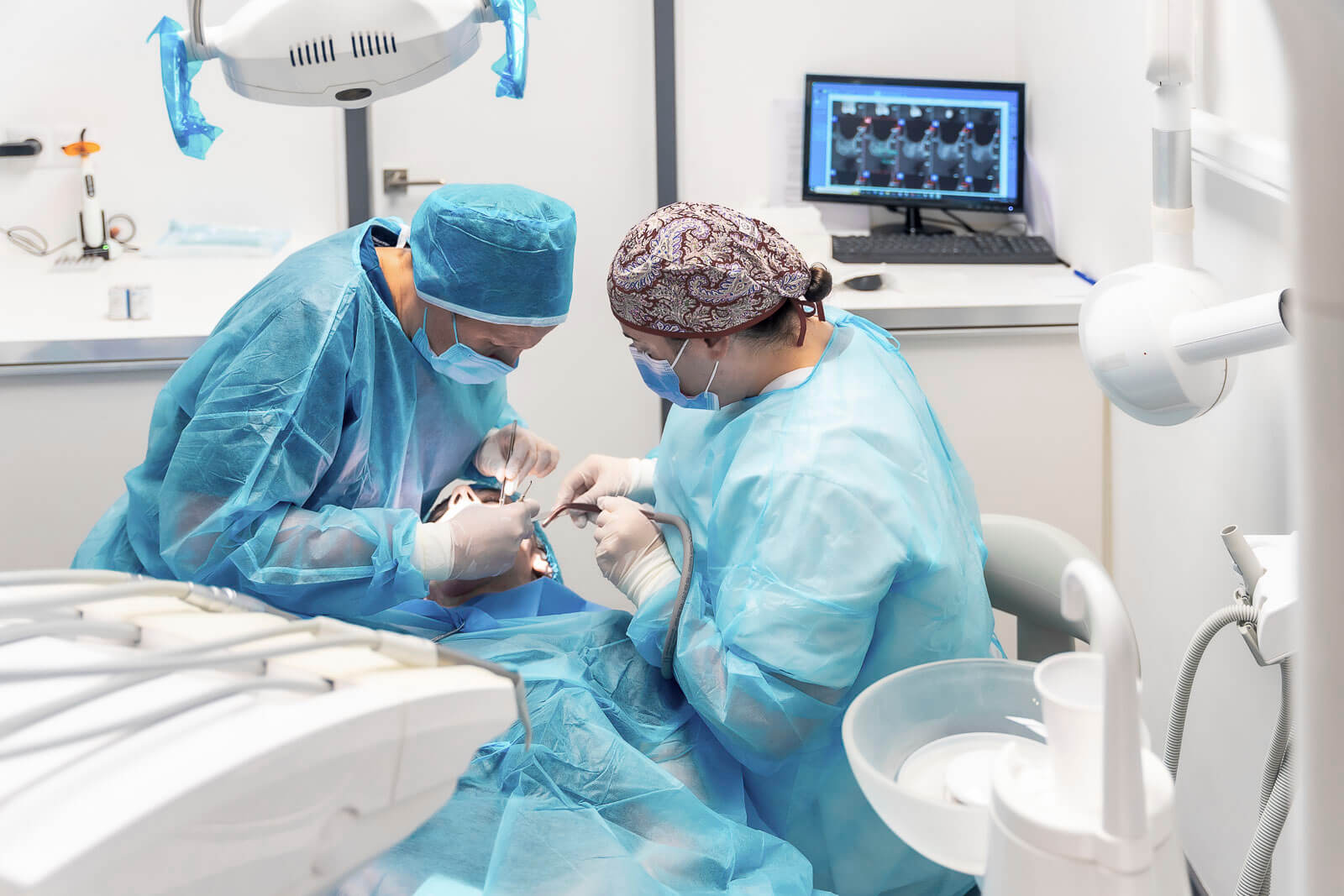Factors Influencing Jaw Surgery Pricing
Geographic Location
The cost of jaw surgery, a surgical procedure focusing on the jawbones and mouth, can vary widely depending on where you live and your health insurance coverage. In major cities, the expenses tend to be higher due to increased overhead costs for surgical facilities, including health insurance, global fees, and office-related expenses. Rural areas might offer lower prices but with limited specialist options.
Patients often find significant price differences between countries as well, especially at the end of their search for global fees related to treating jaw abnormalities. Some travel abroad for more affordable care, a practice known as medical tourism.
Surgeon’s Expertise
Highly experienced surgeons usually charge more for their services. Their extensive training and proven track record provide peace of mind but at a premium.
Choosing a less experienced surgeon may reduce costs. However, it’s crucial to weigh this decision against potential risks and outcomes.
Complexity of Procedure
Not all jaw surgeries are created equal. Simple corrective procedures are generally less expensive than more complex operations that require extensive reconstruction or multiple surgeries.
The scope of work directly impacts the total cost. Patients needing additional treatments like orthodontics or bone grafts face higher bills.
Insurance Coverage
Insurance plays a critical role in managing surgery costs. Some policies cover a portion of maxillofacial surgery if deemed medically necessary.
However, coverage varies widely between insurers and plans. Patients must review their benefits carefully and consider out-of-pocket expenses.
Overview of Orthognathic Surgery Expenses
Surgery Costs
Orthognathic surgery, or jaw surgery, involves a significant financial commitment. The expenses vary widely depending on the complexity of the procedure and the surgeon’s expertise.
Patients should expect to pay anywhere from $20,000 to $40,000. This range includes the surgeon’s fee, hospital stay, and anesthesia. Some cases may reach higher amounts if additional procedures are necessary.
Insurance Coverage
Navigating insurance for orthognathic surgery can be complex. Not all policies cover this type of surgery since it straddles the line between cosmetic and medical necessity.
It’s crucial for patients to discuss with their insurance providers beforehand. They must understand what is covered and what isn’t. In some instances, insurance may cover a portion of the costs if the surgery is deemed medically necessary.
Additional Expenses
Beyond the surgery itself, there are other costs to consider. These include pre-surgical orthodontics, post-operative care, and potential follow-up surgeries.
Patients might also need to account for lost wages during recovery. Planning for these additional expenses ensures there are no surprises down the line.
Corrective Jaw Surgery Global Fees
Cost Factors
The cost of corrective jaw surgery varies widely. It depends on several factors.
Surgery complexity plays a big role. Simple procedures cost less than complicated ones. The surgeon’s expertise also affects the price. More experienced surgeons often charge more. Location matters too. Surgeries in large cities tend to be pricier than in smaller towns.
Insurance Coverage
Many wonder if insurance covers this surgery. The answer is not straightforward.
Insurance may cover part of the cost if the surgery is medically necessary. This includes conditions like severe jaw misalignment affecting health. However, purely cosmetic procedures are usually not covered. Patients should check with their insurance providers for specifics.
Additional Expenses
There are costs beyond the surgery itself.
Patients need to consider pre-surgery consultations and post-surgery care. These can add significantly to the overall expense. Travel and accommodation costs for those seeking treatment far from home should not be overlooked either.
Insurance Coverage for Jaw Procedures
Policy Details
Patients often wonder about insurance coverage for jaw surgery. It’s vital to understand your policy’s specifics.
Insurance companies usually cover procedures deemed medically necessary. This includes corrective jaw surgeries that address functional issues, not just cosmetic concerns. Patients should consult their insurance provider to confirm coverage details. They must also check if their surgeon is within the network.
Pre-Approval Process
Getting pre-approval is crucial for coverage.
The process involves submitting medical records and a surgery proposal from your surgeon. Insurers need this to determine the procedure’s medical necessity. Sometimes, they request additional tests or consultations before approval. Starting this process early helps avoid delays.
Out-of-Pocket Costs
Even with insurance, patients may face out-of-pocket expenses.
Deductibles, co-pays, and coinsurance affect the final cost. The specific amounts depend on one’s insurance plan and the procedure’s complexity. Patients should ask their insurer and surgical team for an estimate of these costs beforehand.
Process and Duration of Orthognathic Surgery
Initial Consultation
The journey to a corrected jaw begins with an initial consultation. Here, surgeons evaluate the patient’s needs. They discuss potential outcomes and risks. This step is crucial for setting realistic expectations.
Pre-Surgical Planning
Surgeons then move onto pre-surgical planning. They use advanced imaging techniques to create a detailed surgery plan. This phase ensures precision during the actual procedure.
Surgery Day
On surgery day, patients undergo general anesthesia. The complexity of their condition dictates the surgery length. It can last anywhere from one to several hours.
Surgeons make precise cuts in the jawbone, realigning it as needed. They secure the new position with screws and plates. These materials are usually biocompatible, minimizing the risk of rejection.
Recovery Phase
Post-surgery, patients enter the recovery phase. Swelling and discomfort are common but manageable with medication. The total recovery time varies but generally spans several weeks to a few months.
Patients must follow a strict diet and attend regular check-ups during this period. These appointments allow surgeons to monitor healing and adjust treatments as necessary.
Long-Term Results
Orthognathic surgery offers long-term results that go beyond aesthetics. Patients often experience improved breathing, chewing, and speaking functions. The benefits of undergoing such a complex procedure are significant, impacting overall quality of life.

Post-Surgery Recovery and Limitations
Healing Time
After the complex process of orthognathic surgery, patients enter a critical recovery phase. The healing time can vary, often spanning several weeks to a few months. Initially, swelling and discomfort are common, but they gradually decrease.
Patients must follow their surgeon’s guidance closely during this period. This includes attending follow-up appointments and adhering to prescribed medication schedules. Proper care accelerates healing and reduces the risk of complications.
Dietary Changes
Post-surgery, dietary adjustments are essential. Initially, patients may need to adhere to a liquid diet, gradually transitioning to soft foods as healing progresses. This adjustment helps in avoiding strain on the surgical site.
It is crucial for patients to maintain adequate nutrition during this time. Nutrient-rich fluids and supplements often become necessary components of the diet. These changes support the body’s healing process and ensure a smoother recovery.
Activity Restrictions
Physical activity is significantly limited following maxillofacial surgery. Patients are advised to avoid strenuous exercises and heavy lifting for several weeks. Such precautions prevent any undue pressure on the facial structure.
Rest plays a key role in recovery. Patients should ensure ample sleep and avoid activities that could lead to injury or stress on the surgical area. Adhering to these restrictions fosters a safer and quicker healing process.
Benefits and Risks of Jaw Correction
Improved Functionality
Jaw correction surgery can significantly enhance chewing, breathing, and speaking abilities. Patients often experience relief from chronic pain and discomfort associated with jaw misalignment. This improvement in daily functions can lead to a better quality of life.
After surgery, individuals may find eating more enjoyable. They breathe easier at night, reducing the risk of sleep apnea.
Aesthetic Enhancement
Many patients see a noticeable difference in their facial structure post-surgery. This change can boost self-esteem and confidence. The alignment of the jaw affects the overall appearance of the face, making this surgery not just functional but also cosmetic.
The results often exceed expectations. Patients report feeling happier with their appearance.
Surgical Risks
Like any major operation, jaw correction comes with its set of risks. These include infection, nerve damage, and the possibility of needing additional surgeries. It’s crucial to discuss these risks with a surgeon beforehand.
Infection rates are low but present. Nerve damage might result in temporary or permanent sensation loss.
Recovery Challenges
Recovery from jaw correction surgery can be lengthy and sometimes difficult. Patients must adhere to a soft or liquid diet for weeks or even months. Pain management is also a critical aspect of recovery.
Swelling and discomfort are common but manageable with medication. Patience during this period is essential for a successful outcome.
Closing Thoughts
Navigating the costs of maxillofacial surgery can feel like a maze, but understanding the factors, expenses, and insurance coverage helps clear the path. Your journey through orthognathic surgery—from initial consultation to post-surgery recovery—demands both time and financial commitment. Yet, the benefits often outweigh the risks, offering not just a transformed jawline but also improved health and confidence. Remember, you’re investing in your well-being. Research thoroughly, consult experts, and weigh your options carefully. Ready to take the next step? Reach out to a qualified surgeon to discuss your specific needs and get a detailed quote. Your smile’s transformation is just a consultation away.
Frequently Asked Questions
How much does maxillofacial surgery typically cost?
The cost of maxillofacial surgery varies widely based on factors such as the complexity of the procedure, geographic location, and surgeon’s experience. Prices can range from a few thousand to tens of thousands of dollars.
What factors influence the pricing of jaw surgery?
Factors include the type and complexity of the surgery, the surgeon’s expertise, geographical location, and whether additional procedures are required. Hospital or facility fees also contribute to the overall cost.
Can insurance cover corrective jaw surgery?
Yes, insurance may cover corrective jaw surgery if it is deemed medically necessary. Coverage varies by policy, so it’s essential to consult with your insurance provider for specific details.
What is the typical recovery time after orthognathic surgery?
Recovery time varies but generally ranges from 6 weeks to 12 weeks for initial healing. Complete recovery and final results may take up to a year.
What are the main benefits and risks associated with jaw correction surgery?
Benefits include improved chewing, speech, and breathing capabilities, along with enhanced facial appearance. Risks involve infection, bleeding, nerve damage, and dissatisfaction with aesthetic outcomes. Each patient’s risk profile is unique.
How long does the process of orthognathic surgery take?
The duration of orthognathic surgery can vary but typically lasts several hours. The length depends on the complexity of the case and whether multiple procedures are performed simultaneously.
Are there any limitations or restrictions post-surgery?
Yes, patients typically face dietary restrictions, need to avoid certain physical activities, and follow a strict oral hygiene regimen during recovery. Your surgeon will provide detailed post-operative care instructions.





